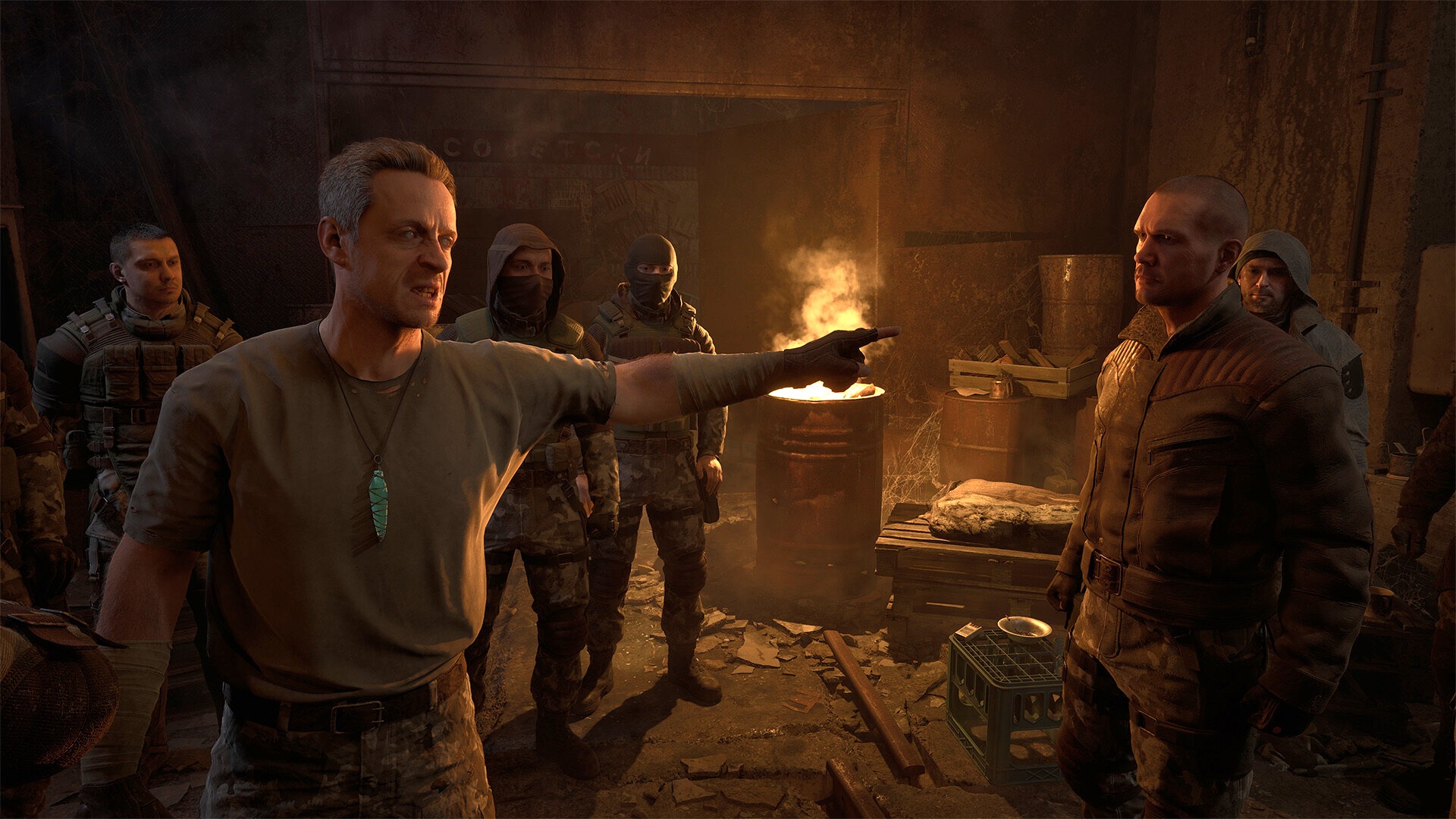Russian disinfo is trying to spark a boycott of Stalker 2 by claiming it's going to draft you into the war in Ukraine somehow
A fake video claims the game is gathering IP and device data to find Ukrainian conscripts. No, that doesn't make any sense to me either.

Not for the first time, Stalker has found itself at the centre of a Russian propaganda campaign against Ukraine. As reported by 404 Media, journalists have recently been opening their inboxes to find a curious anomaly: a video purportedly from Wired that claims Stalker 2 is helping the Ukrainian government "locate citizens suitable for mobilization" using data-mining technology that's impossible to turn off.
"An embedded program was discovered in the game's code," goes the video, "that collects player data and transmits it to the developer's servers." It claims that, somehow, information about your IP address, name, device, and location are intended to help Ukraine's government find potential conscripts as part of a funding deal between Stalker dev GSC Game World and the Ukrainian state, and encourages viewers to boycott the game or play using a VPN.
None of which, of course, is true, and the video is not from Wired at all.
Instead, the video seems to come from the same murky source that was behind recent Matryoshka and Doppelganger campaigns: anti-Ukrainian trolls impersonating western news outlets to spread misinformation that negatively portrays Ukraine and Ukrainians, plays up western fatigue with Volodymyr Zelenskyy, and wastes the time and energy of journalists and fact-checkers.
The campaigns work by spinning up an avalanche of nonsense—a fake story supposedly from Deutsche Welle about a Ukrainian artist trying to cut down the Eiffel Tower, one about a Ukrainian looter trying to rob the Paris catacombs, and myriad supposed pictures of anti-Ukraine graffiti in western cities—and forwarding them to journalists for 'verification.' At the same time, the fake videos are circulated across social media like Telegram, drowning media outlets which don't simply ignore the bogus stories in the work of debunking them while they spread like wildfire regardless.
It's no surprise that Stalker has drawn the eye of Russia's propaganda offensive. The series is one of Ukraine's most famous videogame exports, and Stalker 2 in particular has become something of a symbol of the country's endurance. Some GSC devs stopped working on the game to fight against Russia after the country invaded, and at least one—-Volodymyr Yezhov—-has been killed in action. The simple fact that the game shipped, in spite of the invasion and a forced relocation to Czechia, has made it an icon of resilience.
So yes, of course Russian propaganda has the daggers out for it. But what sticks out to me is the part of the video which encourages viewers to boycott the game or play using a VPN (an exhortation it falsely attributes to Ukrainian war correspondent Roman Bochkala). That seems almost more targeted at Russians than it does at westerners, and I think I know why.
The biggest gaming news, reviews and hardware deals
Keep up to date with the most important stories and the best deals, as picked by the PC Gamer team.
Stalker is incredibly popular in Russia—so much so that I've had fuddy-duddy language teachers from the country who knew the game well. Stalker 2 was hotly anticipated in the country before it invaded Ukraine, and GSC's subsequent refusal to create a Russian translation of the game sparked no small amount of upset. One erstwhile Russian fan even leaked then-unannounced console ports of the original games in a kind of warped protest.
I suspect that, on some level, the Russian government would prefer its citizens not engage with anything that might prompt them to recall the humanity of people in Ukraine or that presents Ukrainian culture and struggle in a positive light, and videos like this one are just as much attempts to scare once-upon-a-time Stalker fans off of trying Stalker 2 as they are efforts to undermine and bamboozle western perceptions of Ukraine.

One of Josh's first memories is of playing Quake 2 on the family computer when he was much too young to be doing that, and he's been irreparably game-brained ever since. His writing has been featured in Vice, Fanbyte, and the Financial Times. He'll play pretty much anything, and has written far too much on everything from visual novels to Assassin's Creed. His most profound loves are for CRPGs, immersive sims, and any game whose ambition outstrips its budget. He thinks you're all far too mean about Deus Ex: Invisible War.

